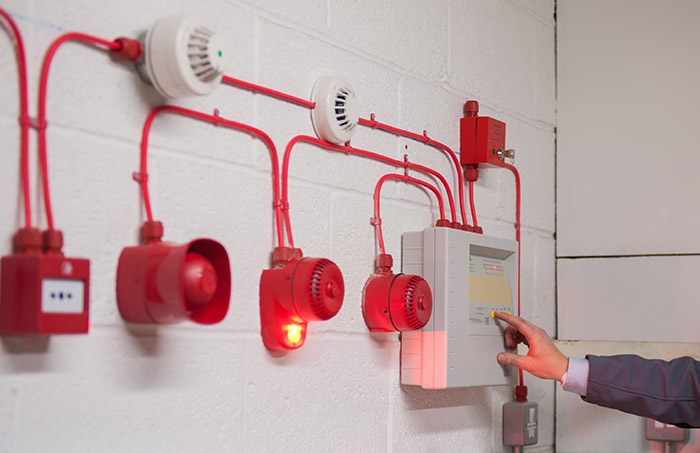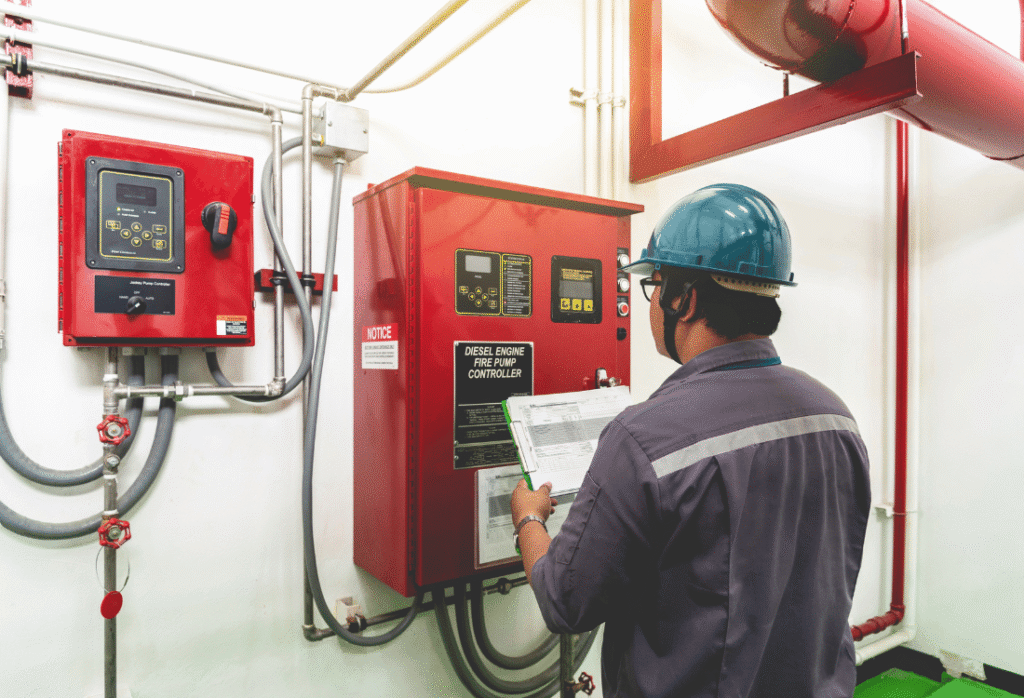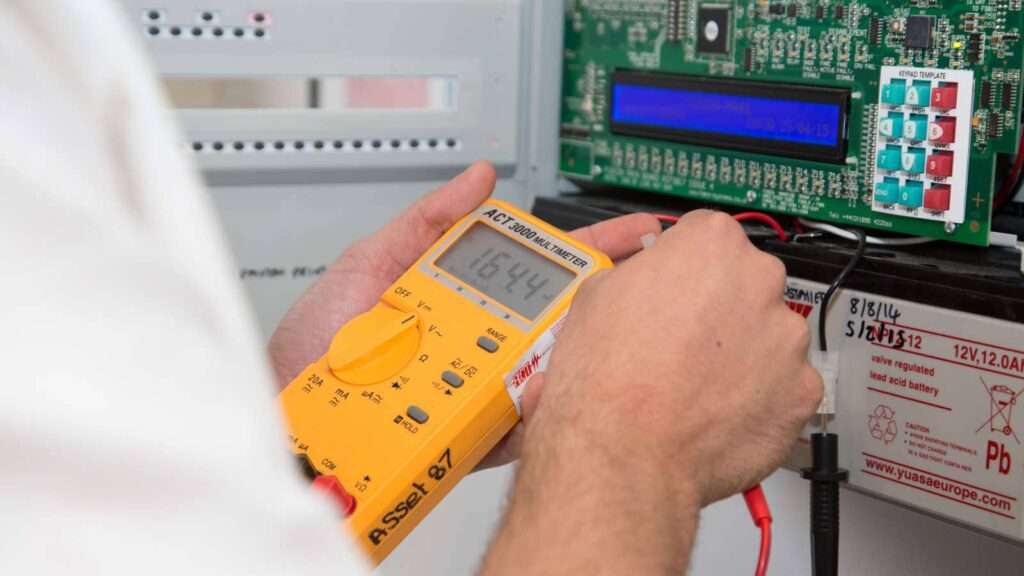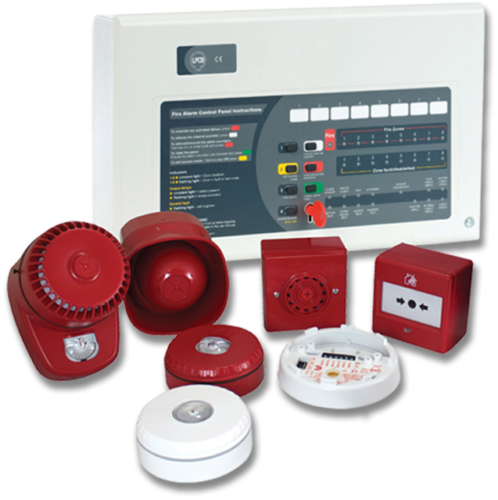Installation
Professional installation of fire alarm systems ensures compliance with relevant standards (e.g., BS 5839-1) and local regulations. This includes designing the system layout, positioning detectors, control panels, alarm devices, and wiring. Certified technicians install the equipment to guarantee reliability and safety.

Commissioning
Commissioning is the final stage where the installed system is thoroughly tested to verify full functionality. It includes checking all detectors, sounders, manual call points, and control panel operations. A commissioning certificate is issued, confirming that the system meets all regulatory requirements and is ready for use.

Maintenance
Regular maintenance is crucial to keep the fire alarm system operational and compliant. It involves routine inspections, functional tests, cleaning detectors, checking batteries and backup power, and repairing any faults. Maintenance schedules vary but typically include monthly, quarterly, or annual visits by certified professionals.

Fire Alarm Systems Upgrade
UK fire safety regulations, improving building safety, and protecting lives and property. Older systems may not meet the current standards outlined in BS 5839-1:2017, which governs fire detection and alarm systems in non-domestic premises.
Why upgrade?
Compliance: New legislation and insurance requirements often mandate updated systems.
Reliability: Modern systems reduce false alarms and provide faster detection.
Integration: Advanced systems can connect to building management or emergency lighting.
Accessibility: Upgrades support visual and vibration alerts for vulnerable users.
Typical upgrade process
Site Survey – A qualified engineer assesses your existing system and building layout.
System Design – A new layout is planned to ensure full coverage and regulation compliance.
Installation – New alarms, detectors, and panels are fitted, usually with minimal disruption.
Testing & Commissioning – Final checks ensure the system is fully operational.
Certification – A certificate of compliance is issued, often required by insurers or local authorities.
Stay Compliant & Protected
Regular maintenance and timely upgrades are not just legal requirements—they are critical for safety. Consult a BAFE-certified provider for advice tailored to your premises.



